Visas are issued by the Italian Embassy or Consular Sections of a foreign national’s country of residence. Permits to stay are issued in Italy by the Questura (Police Headquarters) having jurisdiction in the province where a foreign national is staying. Foreign nationals are required to apply for residence permits within 8 working days (i.e. excluding Sundays and holidays) of arrival.
Citizens of some foreign countries can visit Italy and stay for 3 months without a VISA. In some cases, citizens can stay for a longer period under a permit of stay or “permesso di soggiorno”. In most cases, foreign citizens must return to their country of origin and request a specific VISA at the corresponding Consulate. Therefore, we recommend to ask for a VISA at the Italian Consulate or Embassy of your country of origin in case you want to stay in Italy for a period longer than 3 months.
The most common types of VISA and Permit to stay are the following:
• VISA/Permit for family reunification: valid for a year from the date of issue; it is issued to the sponsoring migrant’s family members following approval of a reunification application.
• VISA/Permit for employment purposes (indefinite, fixed-time or seasonal contracts): this can only be issued after obtaining work authorization from the Sportello Unico per l’Immigrazione – SUI (Immigration Desk) at the Prefettura (central government’s territorial office). In order to enter into an employment relationship with a non-EU national residing abroad, employers, whether Italians or foreigners legally residing in Italy, are required to apply for permission to hire an individual migrant worker at the Immigration Desk in the province where the job will be carried out.
• VISA/Permit for self-employment purposes: may be applied for to conduct a non-occasional, self-employed work activity in the industrial, professional, handicraft or commercial sectors; to set up a company or partnership; to access corporate managerial positions. In order to obtain such a visa, foreign nationals must fulfil the same professional and moral requirements demanded for Italian citizens by the law with regard to the same type of activity.
• VISA/Permit for highly qualified workers: such is the case of journalists, highly specialized staff who work for a corporation domiciled in Italy, artists, dancers and musicians, etc (art. 27 Decreto Legislativo 25 luglio 1998, n. 286).
• Elective Residency Permit: the Elective Residence Visa/Permit is for those who have chosen Italy as the country of permanent residence and who are able to support themselves autonomously, without having to rely on employment while in Italy, whether as dependent employees, as self-employed employees or employees working remotely online. You cannot finance your residence in Italy through any type of work and to obtain the VISA/permit you must demonstrate that you own a property or that you have signed a lease.
Useful blogs:
Expats taxes in Italy 2021
FAQ: Italian taxation for Expats
Taxation in Italy
Tax benefits for those who transfer the fiscal residence to Italy
Useful links:
Ministry of Foreign Affairs (Italy)
Chamber of Commerce
Public administration for businesses
National Agency for Investment and Business Development
Directory of companies in Italy
Don’t forget to check out our Social Media accounts and subscribe to our Newsletter so you can be updated with information customized for people that want to move, live and love Italy!
FAQs for Italian citizenship by Marriage (2023)
Understanding the Tessera Sanitaria: Your Italian Health Insurance Card
Non-Married Partners: How to Obtain a Residence Permit in Italy as De Facto Cohabitants
How to get tax identification number for foreign citizens (Codice Fiscale)
How to register in Italy as a EU citizen
Mastering Public Transport in Italy
The Advantages of Dual Citizenship with an Italian Passport: Unlocking Boundless Opportunities
What you need to know about Visas and Permits to stay in Italy
Previously, Legal help for Expats published this post on how to acquire Italian citizenship. If you’ve read it and realized that CITIZENSHIP AS A RESULT OF ITALIAN PARENTS/ANCESTORS (“ius sanguinis”) is your case, then here are the complete instruction on how to proceed:
The procedure to apply for jure sanguinis citizenship can be carried out at the Italian Consulate in a foreign country where the applicant resides, or in Italy.
(Art. 1, Law No. 91/1992)
If the citizenship application process is filed in Italy, you might need to move to Italy for the duration of the procedure (in order to be available in case public administration requires it; you can process it or delegate the process)
Immediately after your arrival in Italy, you must declare your presence in the country (“dichiarazione di presenza”) at the Municipality where the procedure will be carried out indicating your residence address. Then you must appear in person before the “Prefettura” with appointment to get your paperwork checked.
Duration of citizenship recognition under administrative law is not predictable at all, since 2018 the Italian Government has established that Public Administration has 4 years to decide on said requests.
The procedure
To apply for jure sanguinis citizenship the applicant must show that he/she has an Italian ascendant and that the citizenship chain has not been interrupted or lost.
You must gather all the required documentation: birth, marriage and death certificates of all ascendants in the same line of kinship up to the applicant applying for citizenship; certificate stating “the absence of loss of Italian citizenship” by the Italian ascendant (e.g.: a letter from a State Public Department such as an Electoral Office or the National Naturalization Record stating that the ascendant never acquired citizenship in any other Country to which he/she emigrated, i.e. and did not lose or renounce Italian citizenship.
The Electoral Office shall certify, that the person never appeared on voting list). Otherwise, if the Italian ascendant has lost or renounce citizenship their Italian citizenship, the applicant must present certificates showing that citizenship was lost after the descendant’s birth, who has acquired the right to citizenship and continues with the citizenship chain.
Example of the right chain of transmission:
- marriage of ascendant A with B
- birth of ascendant C (son of A + B)
- death of ascendant A
- marriage of ascendant C with D
- birth of ascendant E (son of C + D)
- death of ascendant C
- marriage of ascendant E with F
- etc. ... following the chain up to the applicant for citizenship (you)
Each descendant must have been born before the death of his or her direct ascendant.
It does not matter if at any point in his/her life that ascendant A (only Italian citizen of the chain) has lost citizenship, what does matter is that his/her child (C) was born before they lost their citizenship of A.
All certificates issued by foreign Authorities must be legalized and translated by a sworn translator. Legalization is an administrative procedure by which validity is granted to a foreign official document, verifying the authenticity of the signature and the capacity of the signing authority (e.g.: in the case of the UK, USA, Spain or Argentina a document is legalized by apostille). This means that certificates must be legalized only in case they are issued by Official Organizations.
A common question is “does the Apostille expire?”
The Apostille does not have an expiration date, and valid as long as the document is still valid. Birth, marriage or death certificates issued in Argentina and in Italy that are legalized, authorized and apostilled have no expiration date; certificates issued in Spain are valid for three months. Therefore, we suggest that you check with the registry of your own country, or even better, in the city or town where the citizenship process is carried out to avoid expired documentation. Which can delay your process.
Old certificates often present many errors (typos, names do not match, birth dates are not correct, etc.). As a result, doubts could arise about the identity of the person in question. In such cases you can request the corresponding Official Department to rectify the document or to issue a certificate stating that the identity of one person indicated in two different documents is the same.
The “1948” case
In the case of jure sanguinis citizenship by female ascendant, when one of the ascendants is a woman and her descendant was born before 1948, a trial must be initiated before the court with jurisdiction in Rome in order to carry out the necessary procedures.
In common language this is known as the “1948” case.
In 1948 the Italian Constitution established the principle of equal rights between men and women. As there are still legal gaps in some areas of the Italian legal system (including citizenship), a judge’s ruling is necessary for the Court to recognize citizenship.
The duration of the trial can last from 1 to 3 years.
A power of attorney is required to start the trial
In order to avoid any dispute that may delay and/or block a trial, when the applicant can’t sign the power of attorney in person before the lawyer in Italy, we recommend the issuance of a public deed. However, power to act can be granted by private instrument certified by a notary public. In this second case, as established by the Italian Supreme Court of Appeals (rulings nº 22559 of November 4, 2015; nº 12309 of May 25, 2007; n. Of May 5, 2006, etc.), the following is essential:
1) the power of attorney must be signed in the presence of a notary public;
2) the Notary public must have verified the identity of the parties;
3) points 1) and 2) must arise from the declaration of the notary public attached to the deed.
Minors must be represented by the child’s parent or legal guardian. You should check with the notary public in your country which formalities must be fulfilled in such a case.
FAQ:
– When in the same family line there are several descendants interested in obtaining citizenship, one single process (parental trial) can be initiated. Legal representation shall be collective and simultaneous and, as a result, costs shall be reduced.
– The procedure can be followed using the smartphone app “Giustizia Civile”. The app allows checking all the ever-changing circumstances of the trial – except for the name of the parties and the lawyer due to privacy reasons.
– According to Italian law, a child under 18 years old who has already acquired citizenship automatically acquires citizenship if he/she lives permanently with the parent who has already acquired citizenship, even outside Italy (art. 14 law n. 91 / 1992). Proof of cohabitation must be presented together with the necessary documentation (for example, residence certificates).
If you are a not an Italian speaker and you are about to sign an Italian contract we offer this advice.
You should get the contract translated into your own language or into a language you can fully understand. Prevention is better than cure.
We strongly recommend you to contact your lawyer BEFORE signing any contract and BEFORE making any payment. This is the only way to fully understand the consequences of the contractual relationship you are about to enter and to protect your interests through the inclusion of other conditional clauses.
Regarding rental contracts, for example, it is strongly recommended to register the lease (NB the registration is necessary only for rentals up to 30 days). Under the Italian Law system a non-registered contract is invalid, it doesn’t exist.
Registration of the lease is not only an obligation established by law, it is also a guarantee for those who rent an apartment. In case of non registration, the tenant can’t establish the residency in the apartment, the landlord cannot sue the tenant who refuses to pay the monthly price and the tenant can sue the landlord to get the amount back (but this is not an easy procedure). There are also serious fiscal consequences for the landlord and tenant in case of non-registration. It’s also recommended to make payments by bank transfer and not in cash.
#RomeExpats Team

A Guide to Job Hunting for Expats in Italy
Relocating to Italy can be an exciting opportunity, and finding a job is an important part of the process. Here are some steps and recommendations to help you get started: Research the Job Market When considering a career move to Italy or seeking new opportunities within the country, it’s essential to research the job market […]
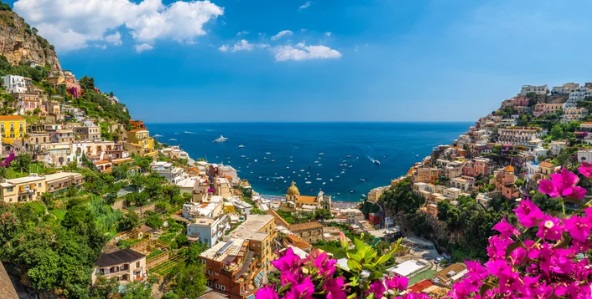
An 8-Day Tour of the Amalfi Coast
Set off on an 8-day adventure across the Amalfi Coast, including excursions to Sorrento, Capri, Pompeii and Herculaneum. Day 1-2: Positano Positano is a visually stunning village on Italy’s Amalfi Coast, characterized by its vibrant cascade of cliffside houses and tranquil beaches. Its labyrinthine streets lead to historical sites such as Grotto La Porta, which […]

10 Benefits of Hiking by Train Around Rome
Guest Article written by Sal from Nature of Sal Embarking on a hiking adventure around Rome by train offers a myriad of benefits beyond mere transportation. From convenience to sustainability, here are ten reasons why exploring Rome’s surrounding hiking trails by train is an enriching experience. Accessibility Train stations are conveniently located throughout Rome (with […]

Activities for the 2777th Birthday Celebration of Rome
Birthday of Rome 19-21 April 2024 at Circus Maximus April 18, 2024 – 8:09 PM On the occasion of the 2777th Birthday of Rome, the area of the Circus Maximus hosts the traditional activities of the Roman Historical Group with representations of ancient rites and festivals, gladiator shows, and historical reenactments. Three days of culture, […]

Relocating to Italy with Your Pet in 2024: Regulations and Tips for a Smooth Transition
Before You Leave: Compliance with Regulations 1. Microchip Identification Before relocating, ensure your pet has a microchip that complies with ISO Standard 11784 or Annex A to ISO Standard 11785. If your pet’s microchip does not meet these standards, you may need to bring a compatible reader, contact the EU Port of Entry for assistance, […]

The Water’s Return to the Baths of Caracalla in Rome
In 2024, the Baths of Caracalla in Rome welcomed the return of water through a remarkable installation named ‘Lo Specchio’ (‘The Mirror’). This contemporary feature, measuring 42 meters by 32 meters, creates a reflective surface that mirrors the grandeur of the ancient ruins, offering a visual connection between Rome’s storied past and its present. The […]

Residence Permit for Digital Nomads in Italy from Non-EU Countries
Italy, embracing the modern work culture of digital nomads, has introduced a comprehensive set of rules for non-EU digital nomads seeking to enter the Italian landscape. The interministerial decree, a testament to Italy’s progressive stance, offers a detailed guide for these skilled individuals who blend the art of living with the science of remote working. […]

A Guide to Grocery and Household Goods Shopping in Italy
Embarking on a new life in Italy brings the excitement of exploring local flavors and the necessity of setting up a comfortable home. That’s why we’ve created this Guide to Grocery and Household Goods Shopping in Italy to help you shop like a local, offering insights into discounted prices and the most reliable home goods. […]

Italy’s Investor Visa: A Visa to Attract Strategic Investments from Abroad
Renowned for its cultural heritage and economic potential, Italy is opening its doors to worldwide investors via the Investor Visa for Italy. This article delves into the intricacies of the Investor Visa, outlining the opportunities it presents and the procedures that accompany it. Since December 2017, non-EU citizens who intend to invest in strategic assets […]

Where to Live in Rome: A Guide for Expats
Rome offers a diverse range of neighborhoods, each with its unique charm and amenities. Expats moving to Rome can choose from historic centers, vibrant student areas, or tranquil residential zones. Here are some of the top neighborhoods for different expat categories: For Families Monteverde Monteverde in Rome is a charming neighborhood that offers a serene […]

Hiking around Rome if you don’t have a car
Guest Article written by Sal from Nature of Sal Italy is a paradise for hikers. While Rome gets all the attention in Lazio, there really is something for all outdoor tastes. From mountains to lakes, dunes, volcanoes, and forests – and of course, tasting the local cuisine is all part of the experience. However, if […]

The Torlonia Foundation in Rome opens the antiquarium of Villa Albani to the public
The Torlonia Foundation in Rome is celebrating its 10th anniversary, a significant milestone that also marks the opening of the antiquarium of Villa Albani to the public from March 28th to June 28th. This event is a rare opportunity for art enthusiasts and historians alike to explore one of the most prestigious private collections of […]

A Guide to Events Happening in Spring in Milan, Rome, Florence, and Bologna
As the chill of winter melts away, Italy awakens to the gentle warmth of spring, inviting locals and travelers alike to indulge in its seasonal splendors. From the cultural and networking events in Milan to the beautiful blooms mingled with the architecture of Rome and Florence, to the Formula 1 Grand Prix in Bologna, Italy […]

Taxes for US expats in Italy: How to avoid double taxation?
With its rich culture, welcoming people, breathtaking sceneries, and fantastic cuisine, Italy is truly a dream destination, isn’t it? Whether you are considering moving to Italy for work or retirement, it is crucial to think about practical matters beforehand to enjoy the dolce vita later on. Understanding taxes is one of the first and most […]
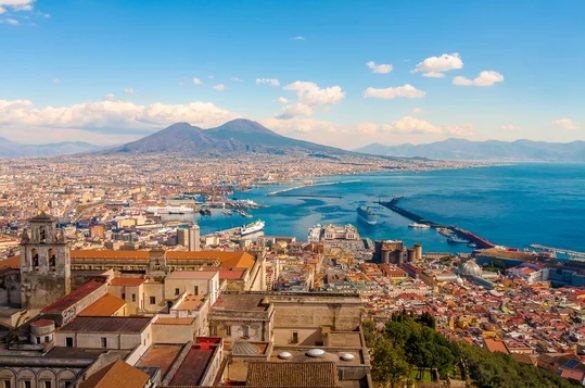
A Weekend Guide to Naples’ Culinary and Cultural Highlights
Naples is a sunny city in the south of Italy, where travelers can enjoy its ancient history, lively culture, and delicious food. A perfect destination for a weekend getaway, Naples offers stunning views of Mount Vesuvius, UNESCO World Heritage sites, and the world-famous Neapolitan pizza. In this guide, we’ll explore how to reach Naples by […]

Exploring the Wild Side: Camping Regulations in Italy
Guest Article written by Sal from Nature of Sal Italy offers amazing landscapes, from mountains, to forests, to lakes and abundant wilderness. It’s only logical that many dream about free camping, just like you would do in Canada, the US, or Northern Europe. Grab your tent, car, all the important things you need to survive, […]

How to Celebrate Women’s Day in Italy in 2024
Women’s Day, or La Festa della Donna, is a popular and meaningful occasion in Italy. It is celebrated every year on March 8 to honor the achievements and struggles of women in society. Here are some ways to join the festivities and show your appreciation for the women in your life in 2024. Give or […]

Buying Property – Mortgage Guidelines for Foreigners
A SIMPLE GUIDE FOR AN EASY TRANSACTION The mortgage loan for foreigners interested in buying a property in Italy is a medium- to long-term commitment, typically lasting from 5 to 25 years. The customer typically receives the entire sum in one lump sum and repays it over time in installments of constant or variable amounts. […]

Find and Buy Your Ideal Property in Italy with Our Professional Services
Property Search and Visits Do you dream of investing in real estate and owning a property in Italy? We can guide you through the entire process of finding and buying your ideal property. We offer a range of services to help you achieve that, such as: 1. A 30 Minutes Free Call 2. A 30/60 […]

A Weekend in Florence: How to Get There and What to Do
Florence is one of the most beautiful and culturally rich cities in Italy, and a perfect destination for a weekend getaway. Whether you are interested in art, history, architecture, or cuisine, Florence has something to offer for everyone. In this article, we will give you some tips on how to plan your weekend in Florence, […]

How to cope with homesickness and culture shock as an expat in Italy
Moving to a new country can be an exciting and rewarding experience, but it can also bring some challenges and difficulties. When you move you may face different customs, languages, values, and expectations that can make you feel confused, frustrated, or isolated. You may also miss your family, friends, and familiar surroundings that you left […]

Where to Go Skiing in and Around Lazio (Despite Lack of Snow)
Guest Article written by Sal from Nature of Sal This winter has presented quite the challenge for snow enthusiasts in and around Lazio. While neighboring regions like Abruzzo boast (some) pockets of powdery delight, Lazio seems to have been bypassed by Jack Frost himself. Sure, there may be a dusting of snow at higher altitudes […]
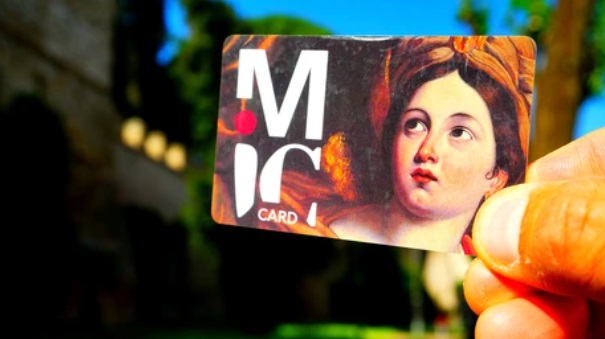
How to get free access to some Rome’s museums with the MIC card
If you love art and culture, and you live, study, or work in Rome or its metropolitan area, you may want to get the MIC card. The MIC card is a special card that gives you free or reduced access to the museums and some archaeological and historical sites of the city for one year. […]

How to register voluntarily to the Regional Health Service (SSR) in Italy
If you are living in Italy and you do not have access to the public health system through employment, pension, or other means, you may still be able to register voluntarily to the Regional Health Service (Sistemi Sanitari Regionali, SSR) and benefit from its services and coverage. However, this option is not available for everyone […]

Moving to Italy? Here’s 3 mistakes American expats should avoid
Our founder, Patrizia Di Gregorio, brings 23 years of experience assisting expats in Italy to adapt to various aspects of life, including immigration, work, learning Italian, accommodation, networking, and making friends. Her expertise led to an interview with Business Insider, where she shared insights on three common mistakes American expats should avoid when relocating to […]
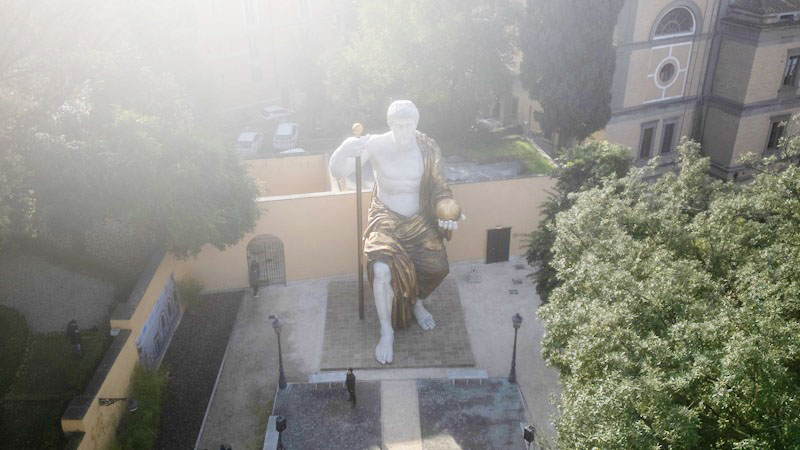
The Colossal Statue of Constantine: FREE Exhibition at the Capitoline Museums
From February 6, 2024 to December 31, 2025, the Capitoline Museums in Rome will host a spectacular exhibition featuring the life-sized reconstruction of the Colossus of Constantine, one of the most impressive statues of ancient Rome. The exhibition, which is free of charge, will take place in the gardens of Villa Caffarelli, where visitors can […]

Things You Should Know Before Going on a Hike with Dog around Rome
Guest Article written by Sal from Nature of Sal One question I’m often asked is whether it’s possible to bring dogs on a hike. As usual, the answer is: it depends. In this article, we’ll specifically explore the situation in Lazio to ensure a positive and safe experience for you and your furry friend, especially […]

Escape to Nature: Day Trips in the Roman Countryside
Guest Article written by Sal from Nature of Sal Residing in the heart of Rome immerses you in a rich tapestry of history and urban life. Yet, for expats yearning for a break from the city’s hustle, the Roman countryside presents a myriad of charming day-trip destinations. Here is your guide to rejuvenating excursions […]

A Guide to Living in Italy with a Dog
Italy is one of the most dog-friendly destinations in Europe, with many places that welcome dogs and offer them a great quality of life. However, there are also some rules and regulations that you need to be aware of if you want to travel or move to Italy with your dog. In this article, we […]

Free Admission to Museums and Archaeological Parks in Italy: What to Explore
How to enjoy Italy’s cultural treasures for free Did you know that you can visit many of Italy’s museums and archeological parks for free on the last Sunday of each month? Whether you are an expat living in Italy or a tourist looking for a cultural experience, here are some tips on how to make […]

How to Open a Bank Account in Italy as a Foreigner or Expat
Italy attracts many foreigners and expats who want to live, work, or study here. However, one of the challenges that they may face is opening a bank account in Italy. Banking in Italy can be complicated, especially for nonresidents who may not have an Italian address or a residence permit. Moreover, different banks may have […]

A Guide to Italy’s Carnivals in 2024
Carnival in Italy is a vibrant and lively celebration that takes place in the weeks leading up to Lent, which is the 40-day period of fasting and reflection before Easter. The exact dates of Carnival vary each year, as they are determined by the lunar calendar. However, it typically occurs in February or March. In […]
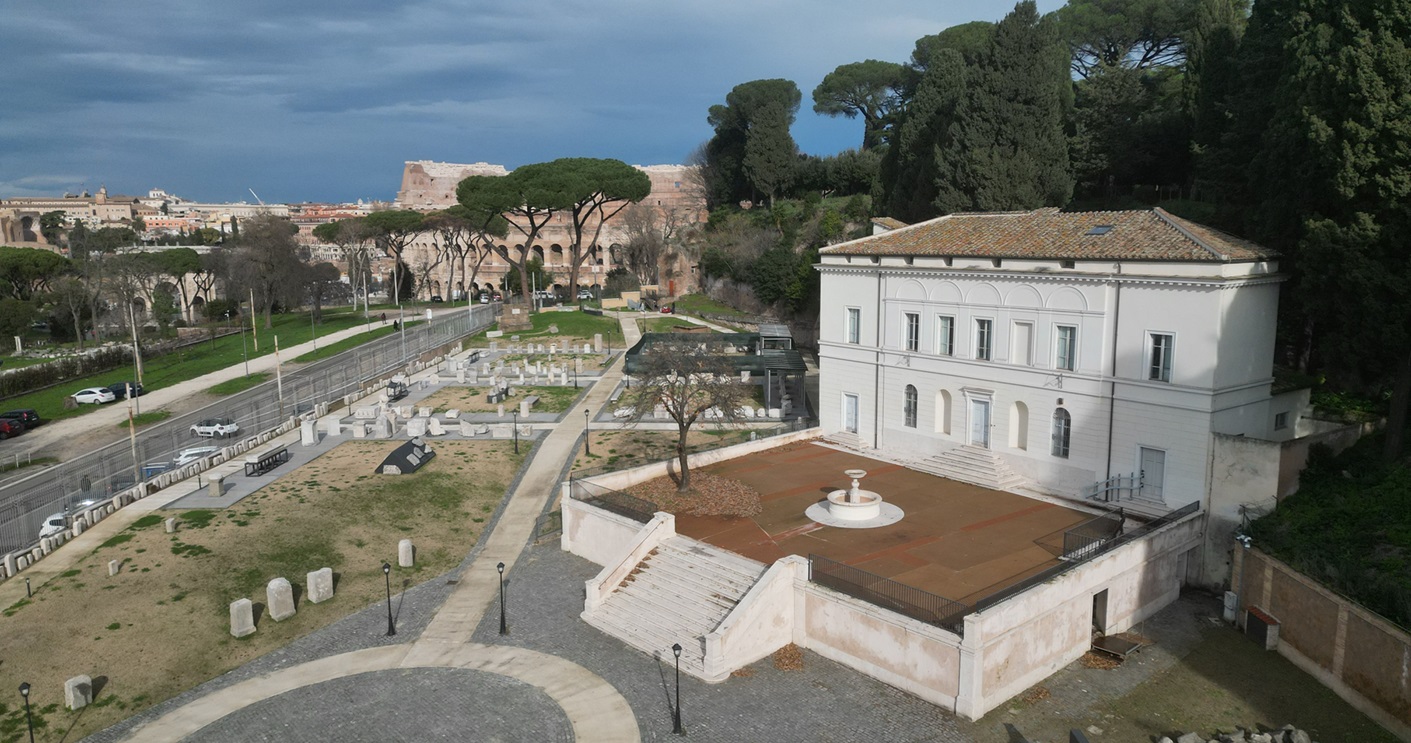
Explore the ancient Rome at the new Celio Archaeological Park and Museum
Do you love ancient Rome? Then you will enjoy the new Celio Archaeological Park and Museum, which opened on Friday, January 12, 2024. The park and museum are on the Celio hill, where you can see many artifacts and monuments from Rome’s past. You can visit the restored buildings in the area, such as the […]

How to Convert a Study Permit / Waiting for job into a Self-Employed Permit | Italy
The residence permit issued for study, internship, training, or waiting for job can now be converted into a permit for self-employed work at any time of the year, thanks to the legislative decree known as “Legge Cutro”. (DL 20 march n. 23, converted in Legge 5 may 2023 n. 50) The conversion of the residence […]

Enjoying the Snowy Outdoors: How to Safely Snowshoe the Winter Wilderness
Guest Article written by Sal from Nature of Sal Love snow? Can’t wait for it to hit? Well, buckle up for a guide on keeping it cool and safe while having a blast in the snowy wonder! Let’s kick off with some not-so-well-known stuff you should know if you’re up for hiking in the […]

10 Most Acclaimed Films related to Italy
From timeless classics to modern masterpieces, the cinematic portrayal of Italy captures the essence of its beauty and complexity. Let’s explore further into the 10 most acclaimed films that have left an indelible mark on the world of cinema. La Dolce Vita (1960) – Federico Fellini This classic takes us on a mesmerizing journey through […]
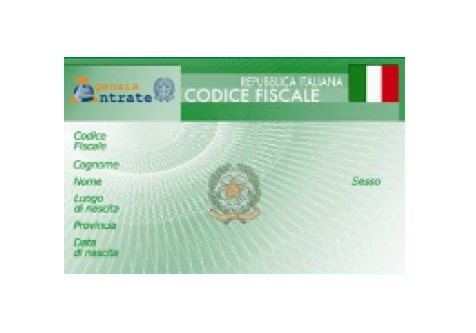
Italian Tax Code: Where to Obtain It is Determined by Your Residency Permit
A crucial aspect of settling in Italy is obtaining the unique 16-character alphanumeric code known as the Tax Code (Codice Fiscle). In this article, we will delve into the intricacies of acquiring the Tax Code for foreign nationals, addressing different scenarios and specific procedures. Understanding the Tax Code The Tax Code serves as a distinctive […]

La Befana: Italy’s Epiphany Tradition and Celebrations Across Italy
In Italy, the festive season extends beyond Christmas, culminating in the celebration of Epiphany on January 6th. A central figure in this unique Italian tradition is “La Befana,” a mysterious character that adds an extra touch of enchantment to the holiday season. Let’s explore the origins of La Befana, her fascinating role in Italian folklore, […]

Italian New Year’s Eve Traditions
In Italy, there are truly many traditions linked to the arrival of the new year. In this article, we will explore some of the most popular ones that make New Year’s Eve unique in the Beautiful Country! 1. La Festa di San Silvestro: New Year’s Eve in Italy is also widely known as “La Festa […]

A Guide to the First Week of January 2024 in Rome
ACTIVITIES FOR BOTH KIDS AND ADULTS UNTIL JANUARY 7TH – Experience a Contemporary Circus Performance featuring Aerial Acrobatics: Witness a contemporary circus performance filled with acrobatics presented by Circus “El Grito.” Embracing the vibrant tradition of the circus, they infuse it with a modern twist. Their shows seamlessly blend elements of circus, dance, music, […]
This article contains useful information for British citizens in Italy in the case of a no-deal Brexit)
EU legislation states that EU citizens have the right to reside on the territory of another EU country for up to three months without any conditions other than the requirement to hold a valid identity card or passport.
Once the UK decided to leave the EU, it has been established that English citizens who have been resident in Italy for less than three months can apply for legal residence (attestazione di residenza) by 31 st October and in case of a no-deal Brexit they will have the right to permanently stay in Italy as it was before the Brexit.
To apply for the residency by the Municipality of Rome you must fulfil the standard application form that you can find on the municipality website.
Basic requirements are as follow:
1) Evidence or affidavit the applicant have financial resources (about 5.500 euros per person – amounts vary year after year);
2) Health Insurance (minimum duration one year);
3) Copy of a valid Passport;
4) Accommodation: if you own the place where you live in Italy, you must attach a copy of the property title; otherwise, you must give evidence of a registered lease agreement or any other accommodation arrangement (for example, letter of hospitality by the landlord, a relative or a friend);
5) Marriage certificate (only if you are applying with your spouse, both being EU citizens);
6) Birth certificate (if you apply with your children)
7) Certificate of civil status evidencing you are single
Bare in mind that, if the Municipality won’t allow you to apply before 31 st October, it’s better if you keep any evidence that shows that you were in the country on 31 st October and intending to stay (not just a tourist visit): evidence of your request (email, “raccomandata con ricevuta di ritorno”, protocol number of the request, etc.), evidence of your arrival (flight tickets, passport stamp, etc.), evidence of your rental contract or property purchase or even hotel stay, Italian bank account showing payments in and out (for eg. utility bills if appropriate).
